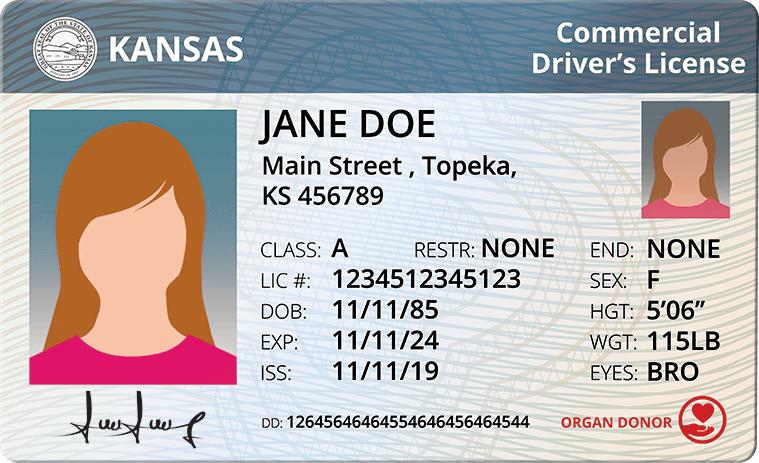
General Knowledge (150 questions)
-
Questions 1-50
General Knowledge Test 1
Start your journey here. Covers the essentials of safely operating a commercial vehicle in Kansas. Unlimited attempts. Detailed explanations. -
Questions 51-100
General Knowledge Test 2
Expect questions on vehicle checks, proper braking technique, fire prevention, visibility, space around your vehicle, stopping distance, and matching speed. -
Questions 101-150
General Knowledge Test 3
Explore essential concepts including vehicle inspection, alcohol and driving, transporting cargo safely, inspecting cargo, air brakes, and important definitions. -
50 random questions
General Knowledge Test Simulator
Designed to replicate the actual CDL test experience. 50 multiple choice questions chosen at random from our database. Each new attempt generates a new set of questions.
HazMat (30 questions)
-
Questions 1-30
KS CDL HazMat Test 1
The path towards a HazMat Endorsement starts here. Questions cover loading requirements, regulated products, document storage, tire inspection, and item descriptions.
Passenger Vehicles (20 questions)
-
Questions 1-20
KS Passenger Vehicles Test 1
Test your knowledge of key concepts including proper procedures at railroad crossings, effective use of mirrors, matching speed with traffic, and stopping distances.
School Bus (20 questions)
-
Questions 1-20
KS CDL School Bus Test 1
Master the key aspects of operating a school bus. This practice test covers crucial topics like approaching stops, matching speed, and transporting passengers safely.
Air Brakes (25 questions)
-
Questions 1-25
KS CDL Air Brakes Test 1
Begin testing your knowledge of air brakes here. Covers tractor valves, pressure gauges, spring brakes, dual air brakes, brake fading/failure, air storeage tanks and more.
Combination Vehicles (24 questions)
-
Questions 1-24
KS Combination Vehicles Test 1
Boost your understanding of coupling tractor semi trailers, trailer hand valves, rollover risks, and trailer air lines with this powerful practice test.
Double/Triple Trailers (20 questions)
-
Questions 1-20
KS Double/Triple Trailers Test 1
Covers crucial topics including mastering proper steering techniques, coupling and decoupling trailers, navigating curves, managing space, and handling skids.
Tanker Vehicles (30 questions)
-
Questions 1-30
KS CDL Tanker Vehicles Test 1
The path towards a Tanker Vehicles Endorsement starts here. Covers identifying tanker vehicles, outage, high center of gravity, bulkheads, and baffled/unbaffled tanks.
Pre-Trip Inspection (9 questions)
-
Questions 1-9
KS CDL Pre Trip Inspection Test 1
Covers overall vehicle safety, documentation checks, vehicle components, the brake system, and operational elements such as lights, signals, and controls.
-
Kansas CDL Handbook 2024
Get the latest (2024) official KS CDL Handbook.
